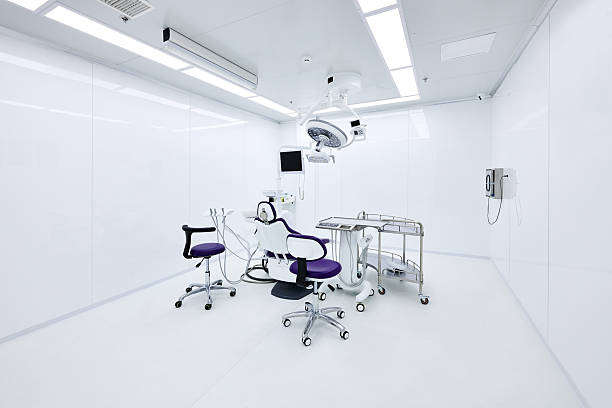First responders carry one of the most emotionally charged jobs. Every day, firefighters, paramedics, police officers, and emergency dispatchers face trauma. The pressure of lifesaving and the constant threat of danger leave a lasting impact. This is the reason why depression treatment for First responders is crucial.
First responders might be strong and courageous, but they are still vulnerable to burnout, anxiety, and depression. Timely interventions and adequate care for mental health will restore balance and improve performance to save lives. Depression treatment for First responders will help educate you on innovative techniques and tackling mental health stubborn myths to assist heroes.
Contents
- 1 Understanding the Unique Mental Health Challenges Faced by First Responders
- 2 Recognizing the Symptoms of Depression in First Responders
- 3 The Importance of Timely Intervention and Support
- 4 Therapeutic Approaches Tailored for Depression Treatment for First Responders
- 5 The Role of Peer Support and Counseling
- 6 Incorporating Resilience Training and Stress Management
- 7 Building a Supportive Environment for Depression Treatment for First Responders
- 8 The Impact of Stigma and How to Address It
- 9 Conclusion
Understanding the Unique Mental Health Challenges Faced by First Responders
First responders are placed in extremes in every emergency scene. Accidents, violence, death, trauma, and injury. The cumulative effect of those haunting images will lead to emotional exhaustion. The stress of a shift doesn’t end there; many allow the trauma to impact their day-to-day lives.
Many of these professionals suffer from post-traumatic stress, anxiety, or depression. Depression treatment for First responders involves developing a treatment plan that goes beyond traditional depression treatment. Because of the nature of their work, responders have to get chronic care that considers the physical, emotional, and psychological impact of their work.
Desensitization and emotional isolation can lead to severe depression without the right support. Their unique programs blend therapy, peer support, and wellness training to address these unique stressors that specifically honor their service.
Recognizing the Symptoms of Depression in First Responders
Depression in first responders is different from the general population. Rather than exhibiting signs of depression outwardly, many first responders hide their pain. The culture in these professions is geared toward toughness, making it more difficult to recognize a need for help.
Excessive irritability, chronic fatigue, insomnia, anhedonia, and social isolation from family and coworkers are common symptoms. Alcohol abuse and behaviors that are out of control are also signs of depression.
The First Step in Successful depression treatment for First responders is awareness. This can be awareness in the workplace or on the part of supervisors and leadership. The supervisors need to receive training on early recognition of signs of depression, especially in First responders. The organization needs to promote awareness of depression and help-seeking behaviors in order to.
The sooner depression is recognized, the quicker it can be treated. Open discourse on the topic, the provision of the necessary material, and the offer of easy and private access to therapy will all help the situation greatly.
The Importance of Timely Intervention and Support
The right time for support and the right time for intervention are critical. The failure to act regarding depression can lead to a ticket to ride on a quickly descending spiral. Once the spiral is in motion, it will compromise a person’s work, relationships, and even their general health. For First responders, a decline in their mental health will result in a direct and immediate danger to the lives of others.
The focus of most depression treatment for First responders is early intervention. Mental health checkups and counseling sessions should be on the same schedule and stay routine as the oversight done for physical health, as it is required.
Having quick access to professional assistance will prevent emotional struggles from worsening. Having mental health check-ins integrated with the physical health supervision will help departments, and the individuals in them, improve their overall wellness. Peer support is critical in the mental health community. Support from peers should reiterate that seeking help is a sign of strength.
Therapeutic Approaches Tailored for Depression Treatment for First Responders
When first responders attend therapy, depression is one of the most common diagnoses. First responders must have therapy that accommodates their experiences. First responders need safe spaces. First responders need safe spaces. Therapy must let them describe their experiences and feelings.
All depression programs use Cognitive Behavioral Therapy (CBT), where most programs “give” clients the ability to replace negative thinking. Eye Movement Desensitization and Reprocessing (EMDR) therapy works well with clients who have depression and trauma.
Attending group therapy lessens the feelings of shame most responders have. Family therapy is also used to help clients who have out-of-balance families. Family therapy restores dislocated emotions and communication repair needed to form new lasting connections.
Chronic stress has a psychological and physiological impact that therapy, exercise, sleep management, and mindfulness can also improve. Promoting, strengthening, and creating balance will improve depression. Each step will improve and decrease chronic stress.
The Role of Peer Support and Counseling
First responders’ peers know emotional challenges better than any other professionals. They encounter the same crises, make tough decisions, and experience the same pressure. Hence, peer support programs are crucial to depression treatment for First responders.
Peer support counselors are trained to recognize signs of distress and provide initial empathetic support. They are able to refer colleagues in need of professional care, which can provide thoughtful and purposeful action.
Such peer support programs foster a cooperative culture in the workplace. Hearing colleagues relate their therapy experiences demystifies the process and encourages other team members to seek assistance. Departments with peer support programs report increased mental health service usage and lower burnout.
Adding professional counseling to peer support provides responders with complete care, including mental health attention and recognition of their commitment.
Incorporating Resilience Training and Stress Management
Resilience is not about the complete lack of stress and the avoidance of challenges. Building resilience provides first responders with the tools to adapt to difficult situations, while not internalizing the trauma that they encounter.
Incorporating depression treatment for First responders that includes resilience training offers skills that make for effective crisis coping. These skills consist of mindfulness practices, grounding, and crisis-specific emotional regulation strategies.
Regular exercise is also of great benefit. Consistent workouts help decrease muscle tension and increase energy, thereby improving mood. These benefits, along with healthy food choices and balanced sleep, help to maintain emotional stability and decline depression.
Stress management, emotional therapeutic training, and on-the-job debriefing help responders to release tension that can build and be damaging emotionally. These techniques improve quality of life and overall performance on the job.
Building a Supportive Environment for Depression Treatment for First Responders
For successful recovery and ongoing prevention, a supportive atmosphere is essential. Departments that put prior wellness on the agenda develop a culture of kindness. Employees feel that their worth and safety are a priority when leadership sponsors initiatives and wellness resources are readily available.
The effectiveness of depression treatment for First responders is more than therapy; it’s the proactive and welcoming work culture that encourages conversation around the issues. Weekly survey-style wellness check-ins create space for leadership to gauge the effectiveness of available resources, such as confidential crisis counseling. Mental health guidelines should be actively enforced, and employees should feel safe speaking up, as well as reporting violations of the rules without fear of judgment or backlash to their career.
Support systems become balanced and holistic when departments, unions, and members of the community join hands, closing the circle so that care is given even to the most junior and most senior responders.
Most workplaces that stop to help a depressed employee will also prevent the onset of depression in the first place. When care is given all the time, the culture of the organization is one of cooperation, trust, and a positive reinforcement cycle.
The Impact of Stigma and How to Address It
Among first responders, one of the biggest challenges in receiving care is fear of stigma. Many people worry that seeking help will lead others to think of them as weak and unfit to do the job.
An organization could work to counter stigma. Campaigns to raise education and awareness surrounding depression treatment for First responders would be a great step. There is a strong motivating power when a leader, and even more so, a top decision-maker, talks about mental health issues.
Offering therapy from an empathetic professional confidentially works to counter stigma. The most convincing are peer advocates who will share their stories of success and help others understand that seeking mental health care is a sign of strength and will help.
Dispel stigma in the workplace will require an organizational culture in which openly declared mental health is the top priority, and, subsequently, it will help ease the organizational culture of silence. In turn, that will help the organization and employees as a whole to heal.
Conclusion
First responder depression isn’t weakness; it’s a human reaction to severe stress and trauma. Most of the people protecting us every day have invisible wounds. They also need comprehensive and compassionate care.
There is hope. Early intervention and evidence-based therapy, peer programs, and resilience training have all been shown to help. Organizations and communities that support mental health help first responders to continue the important work that they do every day safely.
At First Responders of California , we know the unique challenges frontline responders face. Our specialized programs for depression treatment for First responders are focused on restoring hope and encouraging balance so that every responder will be on the path to a healthier and more resilient tomorrow.




